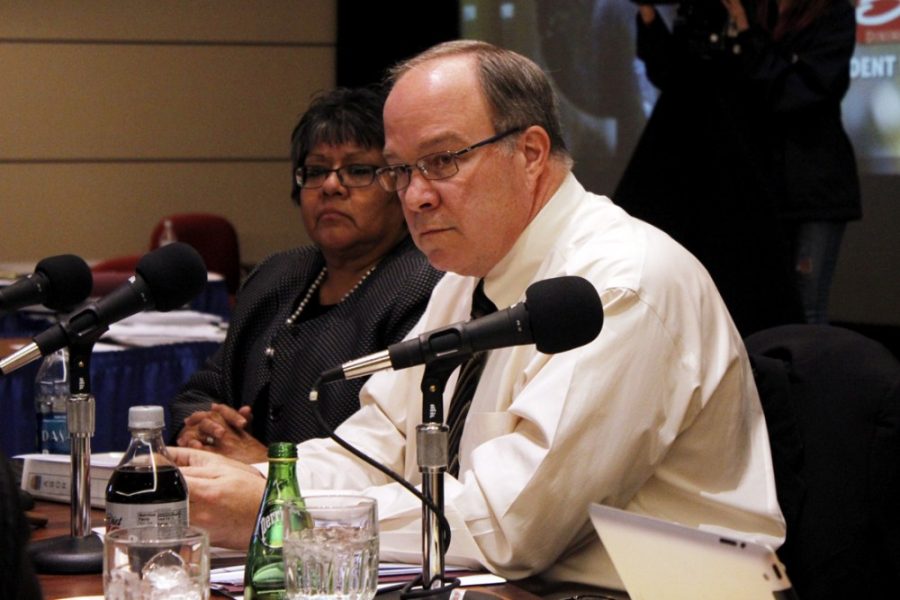The Arizona Board of Regents is pushing for a statewide financial aid program in order for taxpayers to share the responsibility of education costs.
The board recently recommended to the state legislature to add $12.6 million in financial aid to its 2014 budget in the spring. The request is part of an effort to have a program through which students would receive financial aid directly from the state, said Rick Myers, chair of the board.
Arizona is one of a handful of states that doesn’t offer such a program, Myers added.
In 1989, the board, the state Legislature and Arizona Students’ Association, a student lobbying group, created the Arizona Financial Aid Trust fee. While not a statewide financial aid program, AFAT created a student fee with the assurance that the state would match those funds.
Because of tough economic times, however, the state hasn’t been able to match financial aid funds for the past five years, according to Myers. In 2013, students at the three state universities collected about $11 million, and the state funded $10 million of the $22 million they were supposed to, Myers added.
The board of regents is asking the Legislature to fund the remaining of the $22 million in 2014. Since 2008, most financial aid has come either from the student fee without the support of state aid, or from private donors or tuition, Myers said.
Because educated students benefit the entire state’s economy, Myers said the cost of higher education should be spread to society and taxpayers.
“Universities are a public good,” Myers said, “and our people who are being educated here benefit everyone.”
State Rep. Ethan Orr ®, vice-chairman of the Higher Education and Workforce Development committee, agreed that the state should adopt a financial aid program to help make college more affordable for students.
“If someone has the intellectual capacity and desire to go to college, money should not be the thing that stops them,” Orr said. “Creating a statewide financial aid system is the best way to do that.”
While $12.6 million for all three universities isn’t a lot of money, having the state fund higher education sends a message to citizens of the state about the importance of higher education to the state, said Melissa Vito, vice president of Student Affairs.
“It sends a message … that there’s a value and a commitment on the part of the state to help ensure access for students,” Vito said. “The state economy is doing better and yet at the same time … there still is a real strong concern about paying for college and how to balance that.”
– Follow Stephanie Casanova @_scasanova_









